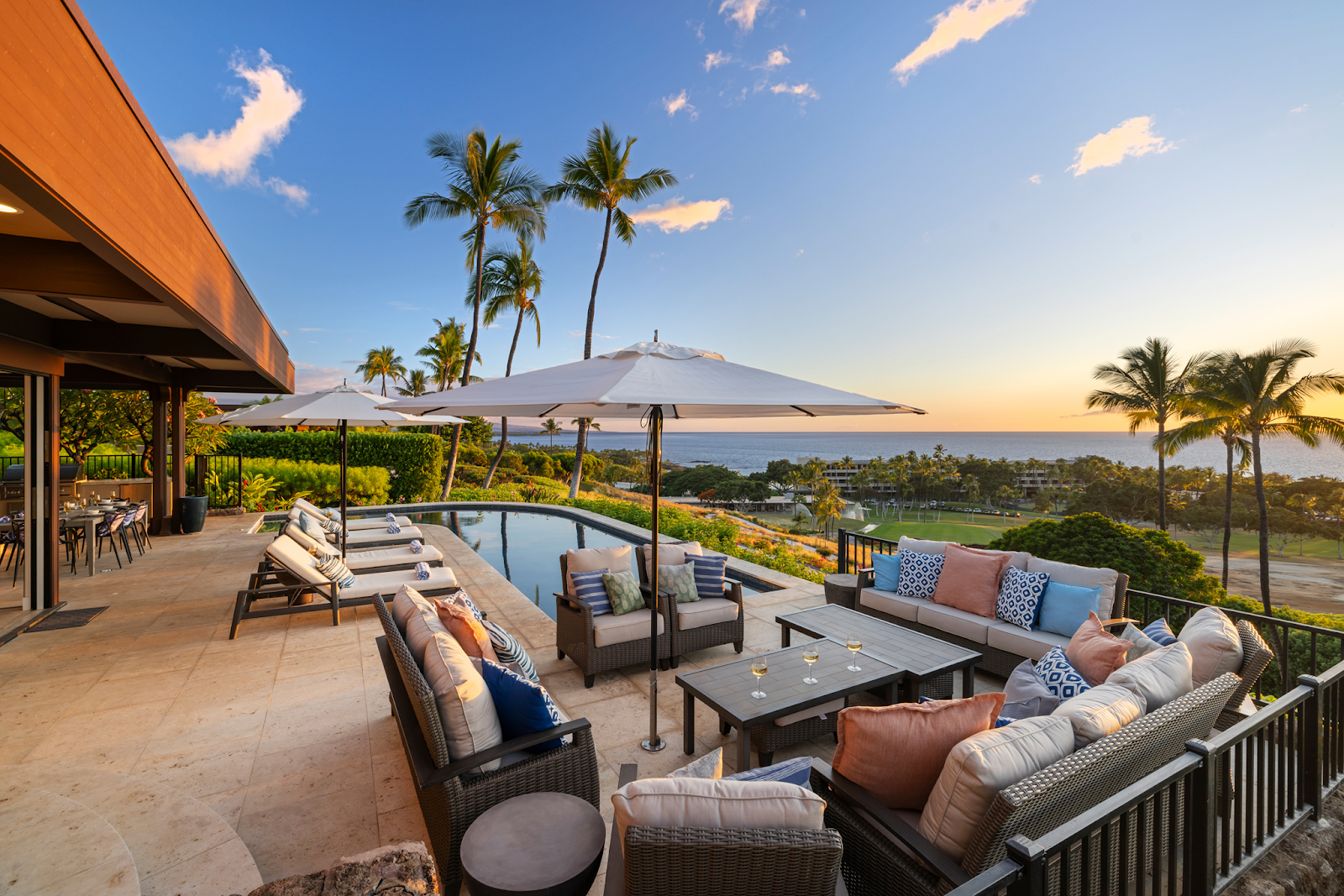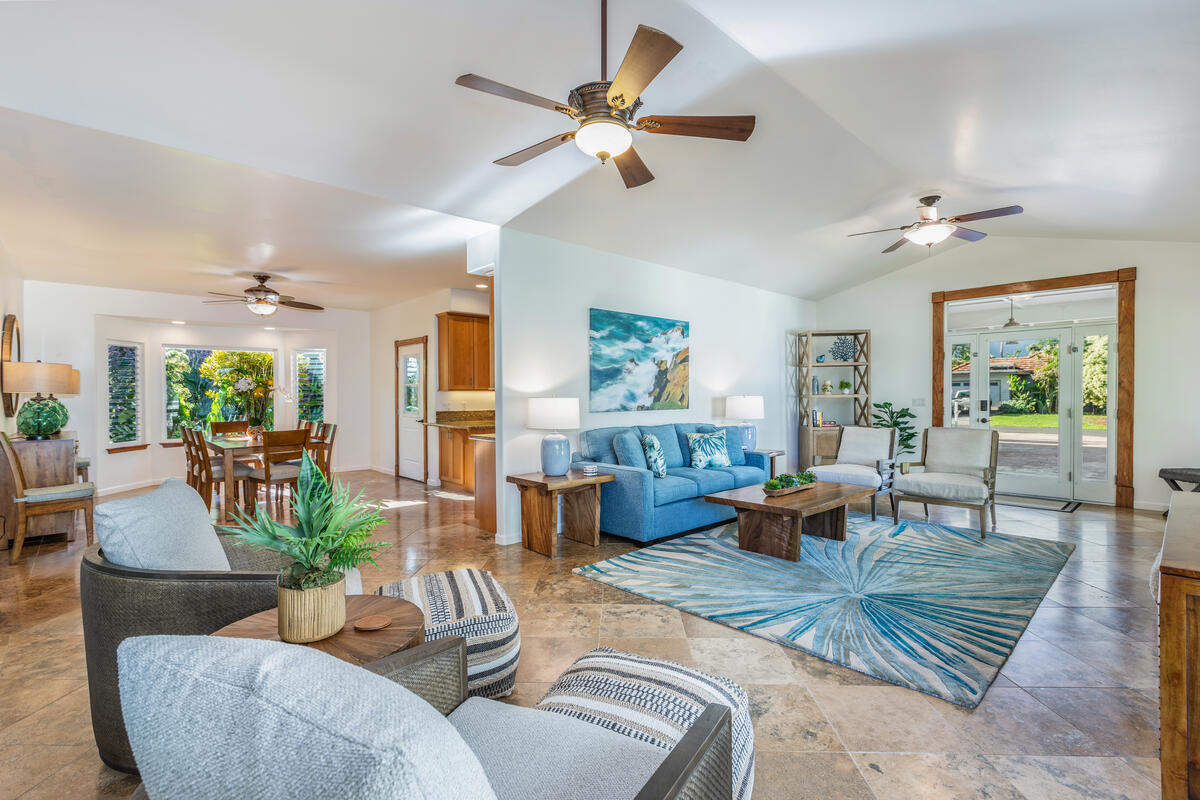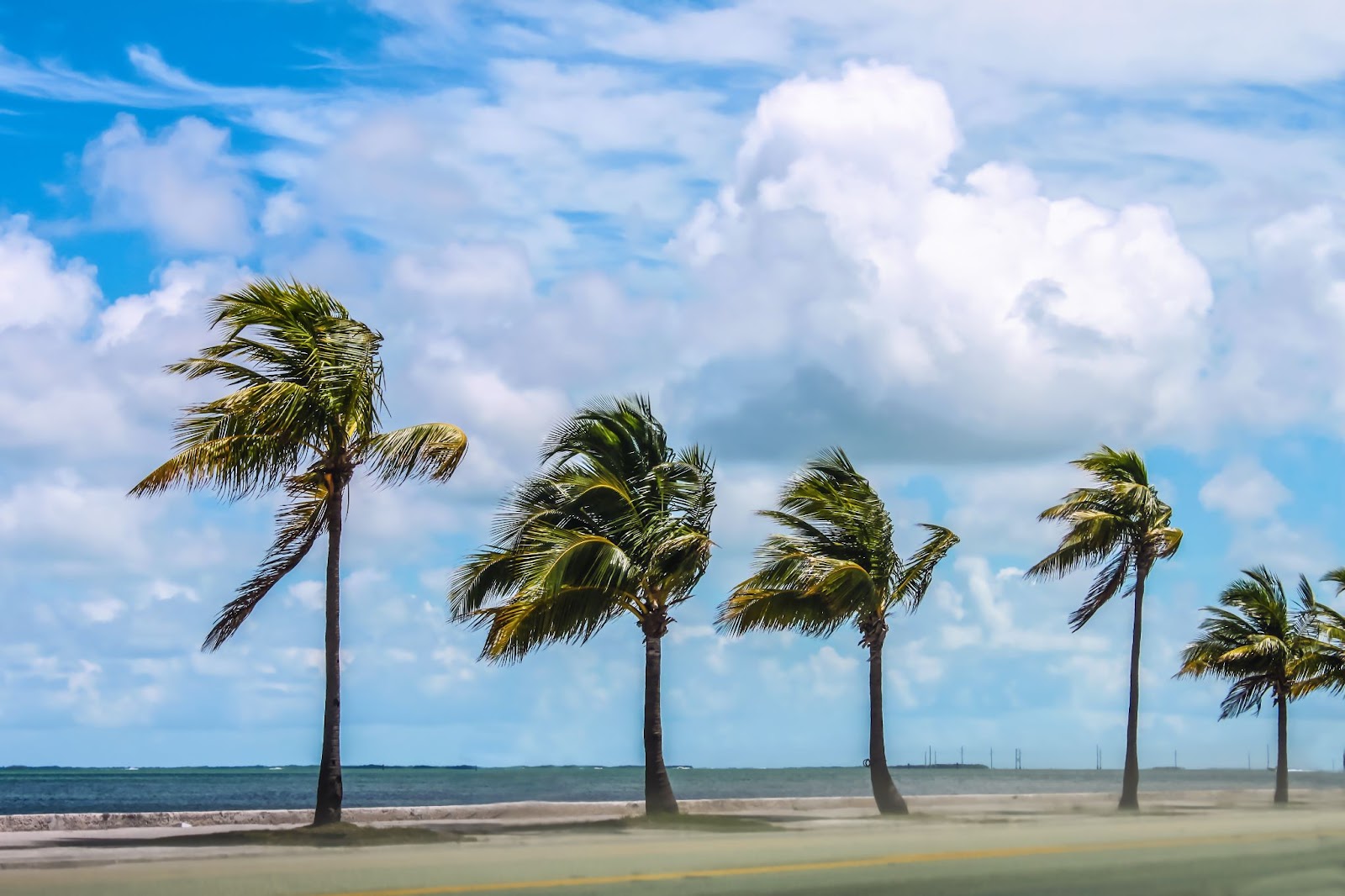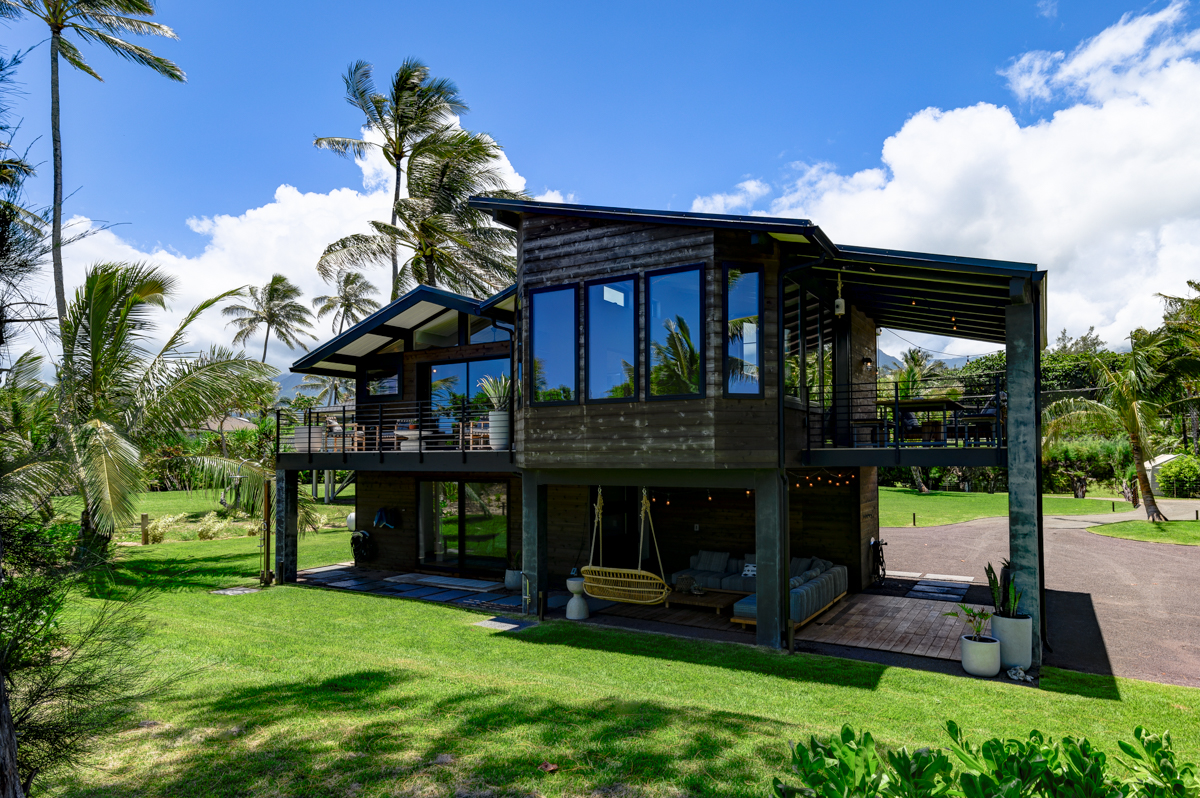Owning a property in Hawaiʻi's islands is a dream come true for many. Hawaiʻi’s islands consistently attract countless property investors and second-home buyers with our stunning beaches, magical landscapes, and engaging local culture.

Whether it's a luxury beachfront estate on Maui, a cozy condo on Kauai, or a vacation rental on the Big Island, Hawaiʻi offers unique opportunities for second homeowners. But with that beauty comes the responsibility of protecting your investment, whether you reside on the island full-time or only visit occasionally.
Hawaiʻi's tropical climate, susceptibility to Mother Nature, and the challenges of remote property management mean that ensuring your property is adequately insured and safeguarded is crucial.
As experts in Hawaiʻi real estate,Hawaiʻi Life's team is here to guide you through essential strategies to protect your second home. We will cover everything from insurance options tailored to Hawaiʻi properties to proactive safety measures that will help you minimize risks while always preserving the value of your property.
Whether you're already a homeowner in Hawaiʻi or considering purchasing a second home soon in our beautiful state, this article will offer insights to protect and maintain your property.
Understanding the Importance of Insurance for Your Hawaiʻi Second Home

If you own a second home in Hawaiʻi, insurance coverage is one of the most important considerations. Unlike primary residences, second homes are often left unoccupied for long periods, increasing the potential risks of vandalism, theft, and unforeseen damage. Additionally, Hawaiʻi's exposure to hurricanes, tropical storms, floods, and wildfires presents a unique challenge that requires specialized insurance coverage.
Here are some Hawaiʻi second home insurance tips that will help you ensure your property is well-protected:
1. How to Insure a Vacation Home in Hawaiʻi
Securing the right insurance for your second home in Hawaiʻi can be more complex than insuring a primary residence. Insurers typically view second homes as higher risk, especially when left vacant for extended periods. To mitigate these risks, it's vital to ensure your policy is comprehensive and fits the specific needs of your property.
Comprehensive Homeowners Insurance: Start by ensuring you have a solid homeowner's insurance policy. This will cover the property's structure and contents in case of a fire, water damage, or theft. However, note that standard policies may not cover risks specific to Hawaiʻi's environment, such as hurricanes or flooding.
Short-Term Rental Insurance: If you plan to rent out your second home through Vacations Hawaiʻi Life or platforms like Airbnb or VRBO, you'll need additional coverage. Regular homeowner's insurance typically doesn't cover accidents or damage caused by tenants, which is where short-term rental insurance comes in. This type of insurance provides liability protection in case of injury to guests and covers potential damages caused by renters.
Long-Term Rental Insurance: If you plan to rent out your second home in Hawaiʻi for extended periods, such as on a yearly lease, you will need specialized long-term rental insurance. Unlike short-term rentals, where tenants come and go frequently, long-term rentals present unique risks due to prolonged occupancy. Regular homeowner's insurance typically does not cover damages or liability related to rental activities, which is why securing a long-term rental policy is essential.
Hurricane and Windstorm Coverage: Hawaiʻi's location in the Pacific makes it susceptible to hurricanes and strong winds, particularly during the hurricane season (June to November). Make sure your policy includes coverage for hurricane-related damage. In many cases, hurricane insurance will come with a separate deductible based on a percentage of the property value.
Flood Insurance: Flooding is one of the most common risks in Hawaiʻi, especially in coastal and low-lying areas. Standard homeowner's insurance does not cover flood damage, so investing in a separate flood insurance policy through the National Flood Insurance Program (NFIP) or a private insurer is crucial. Flood insurance protects your home from damage caused by rising waters, storm surges, and other flood-related events.
2. Homeowner Insurance Tips for Hawaiʻi Properties
Document Your Belongings: Make an inventory list of your personal belongings on the property, including valuable items such as electronics, artwork, and furniture. Documenting these items with photos or videos can streamline the claims process in the event of loss or damage.
Review Coverage Limits: Make sure your coverage limits align with the current value of your home and its contents. Given Hawaiʻi's competitive real estate market, property values can fluctuate, so reviewing your coverage annually will help you stay current.
Understand Deductibles: Hawaiʻi's insurance policies often come with separate deductibles for specific types of damage, such as windstorm or hurricane damage. Be sure to understand your deductible for each category to be financially prepared for a disaster.
Liability Coverage: Liability insurance is vital if you're renting out your second home or hosting guests. It can cover legal and medical expenses if someone is injured on your property.
Consider Loss of Use Coverage: In a major disaster, your home could become temporarily uninhabitable. Loss of use coverage helps pay for living expenses, such as hotel stays or temporary rentals, while your home is being repaired.
Safety Measures for Hawaiʻi Second Homeowners
In addition to obtaining the proper insurance, taking preventive safety measures is equally important. Whether you live on the island part-time or exclusively use your property as a vacation rental, a proactive approach to property safety will save you time, money, and stress in the long run.
Below are Hawaiʻi property safety tips that can help keep your investment secure year-round.
1. Home Security Systems
Installing a home security system is one of the best ways to protect your Hawaiʻi second home, especially if it remains vacant for extended periods. Modern technology makes it easy to monitor your home remotely, giving you peace of mind whether you're across the Pacific or just a few islands away.
Smart Cameras and Video Surveillance: Equip your property with outdoor security cameras that offer remote viewing via a mobile app. These cameras allow you to check in on your home in real time, receive notifications of any unusual activity, and even speak to visitors or maintenance workers through two-way audio.
Motion-Activated Lights: Illuminate dark areas around your property with motion-activated lights. These lights deter potential intruders and enhance overall visibility at night, especially around entry points.
Smart Locks and Remote Access: Install smart locks that allow you to control access to your home remotely. This is particularly useful if guests, cleaning staff, or property managers need temporary access. You can provide temporary entry codes and revoke them when necessary, ensuring your property always remains secure.
Alarm Systems: A professionally monitored alarm system can provide an extra layer of security. Alarms can alert you (and local authorities) in case of a break-in or fire, ensuring a rapid response even if you're off-island.
2. Natural Disaster Preparedness
Hawaiʻi's natural beauty comes with certain risks, particularly hurricanes, floods, and wildfires. Preparing your home for these potential natural disasters is a critical aspect of property ownership in Hawaiʻi.
Hurricane Preparedness

The Pacific hurricane season runs from June through November, making it essential for homeowners to prepare well in advance.
Storm Shutters and Impact Windows: Installing hurricane shutters or impact-resistant windows can significantly reduce the risk of damage from high winds and flying debris during a hurricane.
Secure Loose Outdoor Items: High winds can turn outdoor furniture, planters, and other loose items into projectiles. Before hurricane season, secure or store these items indoors to prevent them from causing damage.
Backup Power: Consider installing a backup generator to ensure your home has power during and after a storm. Power outages are common during hurricanes, and a generator can keep essential systems, such as refrigerators and security cameras, running.
Flood Preparedness
Floods pose a significant threat to homes near the coast or low-lying areas. Here's how to minimize the impact:
Elevate Utilities: If your property is at risk of flooding, elevate utilities, such as water heaters, electrical panels, solar batteries, and air conditioning units, above the base flood elevation. This will help protect these systems in case of flood damage.
Install Flood Barriers: For homes in flood-prone zones, consider installing flood barriers or sandbags around the property's perimeter. These barriers help divert water away from entry points and reduce flood damage.
Check Drainage Systems: Regularly inspect and clean your property's drainage systems to ensure they function correctly. Blocked gutters and downspouts can lead to water pooling around your home, increasing the risk of water intrusion and water damage in the walls of your home.
Wildfire Safety
While wildfires may seem rare in a tropical paradise like Hawaiʻi, they happen, particularly in drier areas like leeward coasts. Wildfire safety is paramount if your property is near brush or dry grasslands. In light of Maui's tragic wildfires of 2023, all Hawaiʻi homeowners should remain vigilant in protecting their properties and families from wildfires.
Create a Defensible Space: Clear dry brush, dead trees, and other vegetation around your property to create a buffer zone. This defensible space reduces the chances of a wildfire spreading to your home.
Use Fire-Resistant Materials: If you're building or renovating your home, consider using fire-resistant materials for the roof, siding, and deck. These materials can withstand higher temperatures and help prevent the spread of fire.
Install Smoke Alarms and Fire Extinguishers: Ensure your home has functioning smoke alarms and fire extinguishers. Test smoke alarms regularly, and keep fire extinguishers in easily accessible areas.
3. Routine Property Maintenance

Proper maintenance is critical to ensuring your Hawaiʻi property remains in top condition. Regular upkeep can prevent minor issues from turning into costly repairs, especially when you cannot 24-7 monitor your home.
Roof Inspections: Hawaiʻi's humid and tropical climate can take a toll on roofing materials over time. Schedule regular inspections to check for leaks, cracked shingles, or damaged flashing. Promptly repairing any issues will help prevent water damage, especially during the rainy season.
Pest Control: Hawaiʻi's warm climate is a haven for pests like termites, ants, and rodents. Regular pest control treatments will help protect your property from infestation and the structural damage that can result from pest damage.
Gutter & Drainage Maintenance: Regularly clean your gutters and downspouts to prevent blockages. Proper drainage is essential to avoid water damage and ensure rainwater is channeled away from your home.
~
Owning a second home in Hawaiʻi is a dream come true, but protecting that investment from natural disasters, theft, and other unforeseen events comes with protecting that investment. By securing comprehensive insurance, implementing proactive safety measures, and staying on top of routine maintenance, you can preserve the value of your property and ensure it remains a safe and enjoyable place for years to come.
At Hawaiʻi Life, we understand the unique challenges of owning a second home in Hawaiʻi. With offices on Maui, Oahu, Big Island, and Kauai, our local experts are here to help you navigate the complexities of insurance, property management, and real estate in Hawaiʻi. Whether you need help finding the perfect property, managing your vacation rental, or ensuring your home is well-maintained, we're here to assist you every step of the way.
Contact Hawaiʻi Life's Property Management Team to learn more about how we can help you protect and manage your Hawaiʻi property. Let us be your trusted partner that you can always count on.
